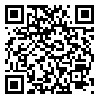Volume 11, Issue 4 (Volume12, Issue 4 2024)
CPJ 2024, 11(4): 89-104 |
Back to browse issues page
Download citation:
BibTeX | RIS | EndNote | Medlars | ProCite | Reference Manager | RefWorks
Send citation to:



BibTeX | RIS | EndNote | Medlars | ProCite | Reference Manager | RefWorks
Send citation to:
Hashemi M, Gholami M. The Relationship between Thinking Styles and Decision-Making Styles with The Mediation of Problem Solving Employees of Startups. CPJ 2024; 11 (4) :89-104
URL: http://jcp.khu.ac.ir/article-1-3735-en.html
URL: http://jcp.khu.ac.ir/article-1-3735-en.html
Khatam University , hashemi.hs@gmail.com
Abstract: (5687 Views)
The research was conducted with the aim of determining the relationship between thinking styles and decision-making styles with the mediation of problem solving among startup employees. The research was descriptive and correlational. The statistical population of the research included all employees in the field of startups in Tehran in 1401. 300 people were selected by available sampling method and responded to research tools including questionnaires of thinking style (Sternberg, 1994), decision making style (Scott and Bruce, 1995) and problem-solving skills (Heppner, 1988). Analysis of research data using descriptive statistics methods (prevalence, percentage, mean and standard deviation), Pearson correlation coefficient, multivariate regression and structural equation modeling and path analysis statistical method with SPSS-26 software and Amos is done. Based on the findings, the proposed model had a good fit in structural equations and causal relationships between the mentioned variables. In general, in the proposed model of the research, it was found that the decision-making style is related to the thinking style both directly and indirectly through the problem-solving skills of the startup employees (P<0.05). The results showed that there was a positive and significant relationship between problem solving skills and its dimensions with decision-making style (P<0.05) and between thinking style and its dimensions with decision-making style. The collected data are consistent with the desired structural model and have a good fit. Therefore, the relationship between thinking styles and decision-making styles is confirmed with the mediation of problem-solving skills in startup employees.
Type of Study: Research |
Subject:
psychology of human behavior
Received: 2023/09/16 | Accepted: 2024/01/30 | Published: 2024/03/6
Received: 2023/09/16 | Accepted: 2024/01/30 | Published: 2024/03/6
Send email to the article author
| Rights and permissions | |
 |
This work is licensed under a Creative Commons Attribution-NonCommercial 4.0 International License. |





